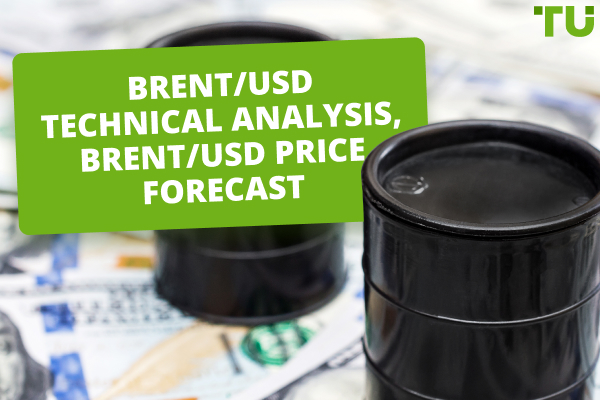How Do I Overcome Common Forex Trading Mistakes
Basic mistakes of beginner traders: lack of a plan and algorithm of actions, violation of risk management rules, emotional intemperance. How to avoid mistakes in Forex trading: develop a trading system, train on a demo account, do not give in to emotions, learn something new every day.
Forex trading is a challenging and exciting activity that can be very lucrative for those who are successful. However, it is also a market that can be very unforgiving to those who make mistakes. In this article, we will look at some of the common mistakes that newcomers to Forex trading make and how to avoid them.
What is Forex trading
Forex trading is the process of buying and selling currencies. It is a global market that is open 24 hours a day, 5 days a week.
Forex traders can profit from changes in the value of currencies. For example, if a trader believes that the value of the US dollar will rise against the euro, he can buy US dollars and sell euros. If his prediction turns out to be correct, he will make a profit.
Best Forex brokers 2024


Common problems of novice traders
Beginners in Forex trading often face a number of problems:
-
Lack of knowledge: Forex is a complex market and there is a lot to know about it. Beginners often lack the knowledge needed to make informed trading decisions
-
Excessive trading: Beginners often trade too frequently, which can lead to losses
-
Lack of discipline: Success in Forex trading requires discipline. Beginners often lack the discipline to stick to their trading plan
-
Lack of risk management: Beginners often do not realize the importance of risk management in Forex trading. They may risk too much money on a single trade, which can lead to large losses
-
Inability to analyze the market: Beginners often do not know how to analyze the market and predict currency movements. This can lead them to make unreasonable trading decisions
-
Inability to control emotions: Trading can be a very emotional activity. Beginners often make mistakes due to fear, greed or other emotions
-
Inability to use technical tools: Beginners often fail to use technical tools to analyze the market and make trading decisions. This can cause them to miss profitable opportunities or make unwarranted trades
-
Inability to learn from their mistakes: Beginners are often not willing to learn from their mistakes. They may make the same mistakes over and over again
-
Ignorance of the law: Beginners are often unaware of the laws governing Forex trading. This can lead to problems with tax authorities or other regulators
-
Inability to use trading platforms: Newbies often do not know how to use the trading platforms provided by brokers. This can lead to mistakes when making trades
-
Inability to choose a broker: Newbies often do not know how to choose a broker that suits their needs. This can lead to financial losses
Typical mistakes made by beginners
Classic mistakes of beginner traders are lack of strategy, lack of understanding of the algorithm of achieving goals, neglect of risks, desire to get "everything at once", emotional intemperance.
Lack of a trading plan
A trading plan is a roadmap for your trading. It should include your trading goals, strategies and risk management rules. Beginners often trade without a trading plan. This can lead to poor trading decisions and losses.
Some of the problems that can arise from not having a trading plan are:
-
Inability to make informed trading decisions: Without a trading plan, traders often make decisions based on emotion rather than logic. This can lead to ill-considered trades that can turn out to be unprofitable
-
Failure to manage risk: Without a trading plan, traders may risk too much money on a single trade. This can lead to large losses if the trade goes against them
-
Inability to track results: Without a trading plan, traders find it difficult to track their results and make necessary adjustments to their strategy
How you can avoid these problems:
-
Take time to develop a trading plan: A trading plan is an important tool that can help you become a successful trader. Take the time to develop one and make sure it fits your goals and the risk you are willing to take
-
Follow your trading plan: Even if you feel that a trade can be successful, don't violate your trading plan. Remember that your trading plan is based on your experience and knowledge, so it is better to stick to it than to make decisions based on emotion
-
Review your trading plan regularly: Once you start trading, you will realize that your trading plan may need adjustments. Review your trading plan regularly to make sure it still meets your goals and the risk you are willing to take
Some additional tips for developing a trading plan:
-
Define your goals: What do you want to achieve by trading Forex? Do you want to earn profits? Insure yourself against currency risks? Or just to try your hand at trading?
-
Choose your strategy: There are many different Forex trading strategies. Research the different strategies and choose the one that suits you best
-
Set risk management rules: Determine how much money you are willing to lose on each trade. This will help you avoid large losses
Developing a trading plan is an important step towards success in Forex trading. By taking the time to develop a sound trading plan, you will be able to make informed trading decisions and reduce your risk of loss.
Trading without stop losses
A stop loss is an order to sell a position at a predetermined price. It is a way to limit your losses on a trade.
Beginners often do not use stop losses. This can lead to large losses if the trade goes against them.
Some of the problems that can arise due to lack of stop losses are:
-
Loss of all funds: If a trade goes against you and you do not use a stop loss, you can lose all the funds that you have invested in that trade
-
Reduced profits: Even if the trade is ultimately successful, you may lose some of your profits if you do not use a stop loss
-
Stress and frustration: Trading without a stop loss can be very stressful and frustrating. You will constantly worry that your trade could go against you and you will lose money
How to avoid the problem:
-
Use stop losses on all trades: No matter how confident you are in your trade, always use a stop loss
-
Don't set your stop loss too close to the current price: If you set your stop loss too close to the current price, you may close the trade at a loss, even if it ends up being successful
-
Use stop losses based on your risk: Determine how much money you are willing to lose on each trade and set your stop loss at a level that does not exceed your risk
Using stop losses is an important step towards success in forex trading. Stop losses help limit your losses and protect your profits.
Excessive trading
Excessive trading means being in front of the computer all the time and constantly monitoring the charts. This can lead to losses because it is difficult to make accurate trading decisions when you trade too often.
Beginners often over-trade because they are trying to make a lot of money quickly. They may think that the more trades they make, the more money they will make. However, this is not the case. In fact, excessive trading can lead to losses.
Here are some of the problems that can arise from excessive trading:
-
Increased risk: The more trades you make, the higher your risk
-
Decreased profits: If you can't make accurate trading decisions, you are likely to make more losing trades
-
Stress and frustration: Trading too often can be very stressful and frustrating. You will constantly worry that your trades may go against you
How you can avoid these problems:
-
Set a limit on the number of trades you make per day: This will help you control your trading and reduce your risk
-
Practice trading with a demo account: This will help you learn to make more accurate trading decisions before you start trading with real money
-
Take your time: Do not try to make a lot of money quickly. Start small and gradually increase your trading volume as you gain experience
-
Don't trade if you are tired or emotional: When you are tired or emotional, you are more likely to make mistakes
-
Don't trade if you are unsure of your trade: If you are unsure of your trade, it is best not to make it
-
Give yourself time to think about each trade: Don't rush into making a trade. Take time to analyze the market and make an informed decision
Excessive trading is a common mistake that beginners make. By avoiding over-trading, you can increase your chances of success in Forex trading.
How to avoid common mistakes
There are a number of things you can do to avoid common Forex trading mistakes:
-
Learn as much as you can: The more you know about Forex trading, the better prepared you will be to make informed trading decisions. There are many resources to help you learn about Forex trading, including books, websites, and courses
-
Practice trading with a demo account: A demo account is a simulated trading account that uses real market data. It's a great way to practice trading without the risk of losing real money
-
Start small: Don't risk more than you can afford to lose. Start with a small account and gradually increase your risk as you gain experience
-
Find a mentor: A mentor can provide you with guidance and support while you learn to trade. There are many experienced traders who are willing to teach beginners or willing to share their signals with them for a portion of the potential profits
-
Don't be afraid to ask for help: There are many resources to help you learn about Forex trading. Don't be afraid to ask for help if you need it
-
Set realistic goals: Don't try to make too much money too quickly.
Focus on learning and improving, not on making a lot of money.
Conclusion
Forex trading can be a very rewarding experience, but it is important to be prepared for challenges. By learning from the mistakes of others and taking steps to avoid them, you can increase your chances of success.
FAQs
What are the common mistakes that Forex traders make?
Forex trading beginners often make the following mistakes:
-
Lack of knowledge: They do not understand how the Forex market works and do not have the necessary skills to make informed trading decisions
-
Emotional trading: They let their emotions, such as greed or fear, drive their trading decisions
-
Excessive trading: They make too many trades, which increases their risk
-
Inability to manage risk: They risk too much money on each trade, which can lead to large losses
-
Impatience: They expect quick success, which can lead to rash trades
Constant learning and confidence is the key to success in forex trading.
How do you get out of a bad trade in Forex?
Use stop loss. A stop loss is an order to sell a position at a predetermined price. It will help you limit your losses if the trade goes against you, or close the trade manually and accept the loss.
How do you avoid trading mistakes?
Learn, control your emotions, be patient.
What's the hardest mistake to avoid while trading?
The hardest mistake to avoid while trading. Even when you have a clear plan, lack of emotional control can cause you to break it and make mistakes.
Glossary for novice traders
-
1
Broker
A broker is a legal entity or individual that performs as an intermediary when making trades in the financial markets. Private investors cannot trade without a broker, since only brokers can execute trades on the exchanges.
-
2
Trading
Trading involves the act of buying and selling financial assets like stocks, currencies, or commodities with the intention of profiting from market price fluctuations. Traders employ various strategies, analysis techniques, and risk management practices to make informed decisions and optimize their chances of success in the financial markets.
-
3
Forex Trading
Forex trading, short for foreign exchange trading, is the practice of buying and selling currencies in the global foreign exchange market with the aim of profiting from fluctuations in exchange rates. Traders speculate on whether one currency will rise or fall in value relative to another currency and make trading decisions accordingly.
-
4
Risk Management
Risk management is a risk management model that involves controlling potential losses while maximizing profits. The main risk management tools are stop loss, take profit, calculation of position volume taking into account leverage and pip value.
-
5
CFD
CFD is a contract between an investor/trader and seller that demonstrates that the trader will need to pay the price difference between the current value of the asset and its value at the time of contract to the seller.
Team that worked on the article
Alex Smith is a professional day trader for a proprietary trading firm within the foreign exchange (forex) and crypto markets. His area of expertise is day trading and swing trading within the 15min-4hr time frames for both the London and NY open.
Dr. BJ Johnson is a PhD in English Language and an editor with over 15 years of experience. He earned his degree in English Language in the U.S and the UK. In 2020, Dr. Johnson joined the Traders Union team. Since then, he has created over 100 exclusive articles and edited over 300 articles of other authors.
Mirjan Hipolito is a journalist and news editor at Traders Union. She is an expert crypto writer with five years of experience in the financial markets. Her specialties are daily market news, price predictions, and Initial Coin Offerings (ICO).









